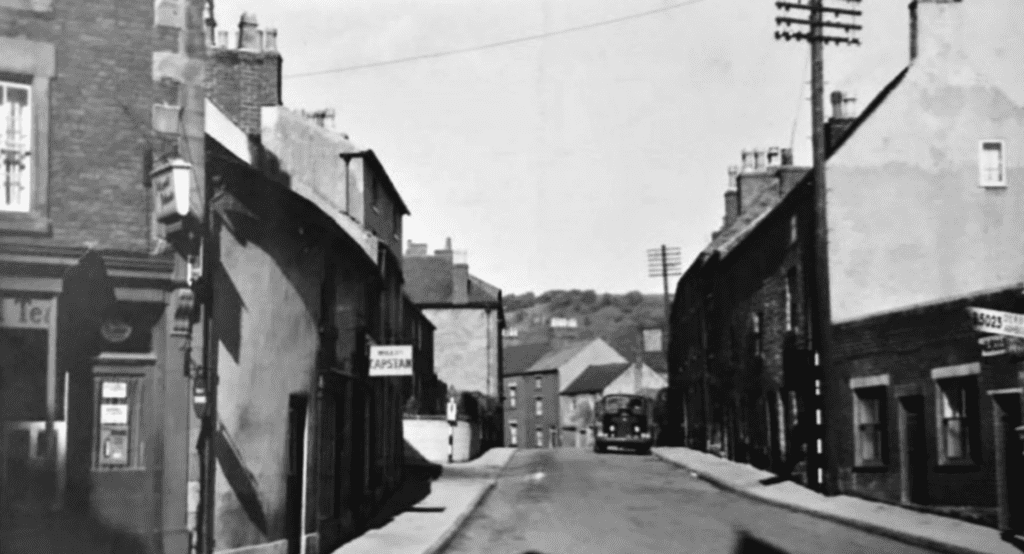
It is difficult to envisage that before Harrison Drive opened in 1940, North End served as the major northern route into the town. Prestigious buildings interspersed with commercial properties fronted the street and a diverse range of businesses were located along the thoroughfare. Harrison Drive was built to ease the flow of local quarry traffic south through the town, avoiding the narrow confines of North End and Coldwell Street.
Bagshall’s Directory of Derbyshire (1846) indicates that many craftspeople occupied premises in North End. There were blacksmiths, painters, a chimney sweep, surveyors, leather curriers and wheelwrights. North End’s retailers at the time included William Kendrick (baker and flour dealer), Henry Tomlinson and William Udale (boot and shoe makers), Joseph Ferrand, William Ogdan, Joseph Tomlinson and Francis Walker (butchers), Elizabeth Walker (milliner and dress maker) and John Gaucher (tailor).
By 1900, North End had yet more retailers, selling from both front room shops and shop premises as we would recognise them today. Ann Brooks (grocer), James Brough (bird and animal preserver), Elizabeth Bucknall (blanket maker), Reuben Crowder (furniture agent), James Else (fishmonger), Charles Smith (butcher) and Richard Taylor (grocer) were all established traders. Kelly’s Derbyshire Directory of the time indicates that craftspeople too were still working on North End.
Kelly’s Directory of 1925 is far more specific regarding the location of businesses in North End and this gives us the opportunity to match traders to their premises. Take a walk along North End today and you will see the buildings where shopkeepers and artisans once plied their trade. You may even recognise some of the listed names.
The mix of retail premises changed subtly over the decades. In 1930, George Cooper opened his butcher’s shop on the corner of North End and Coldwell Street, later moving to St John Street. Herbert Millward set up as a butcher, George Else ran a watch and clock repair workshop, and Harold Slater Riley a radio engineering business.
Change was slow and over time many retail premises closed and were converted into residential properties. As you walk along North End and look at the buildings, you may see architectural traces of their former uses. Look for the ghost sign above 20 North End, the former Raleigh Cycle Shop and more recently Home Pets. The former Weston’s Fridge and Freezer outlet has been transformed into the Northern Lights Cinema and long before that was a maltings, preparing barley for brewing. The Wirksworth Institute building has been converted from Buxton’s Joiners and Undertakers to become three premises, including Hers and Sirs Hair Design Salon and, until recently, the Cat’s Protection League charity shop.

